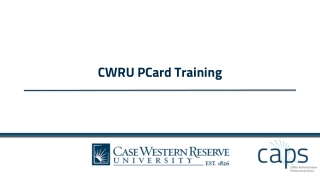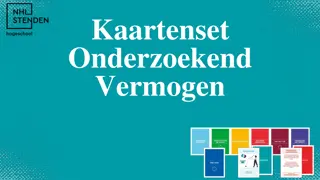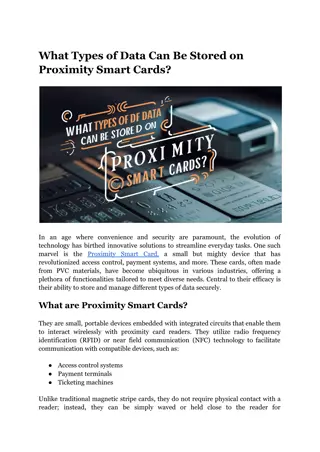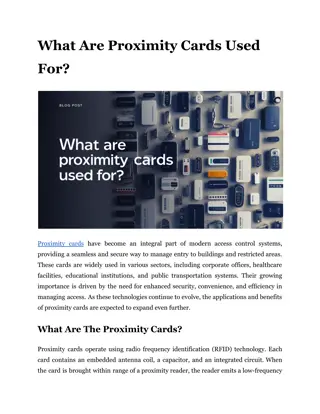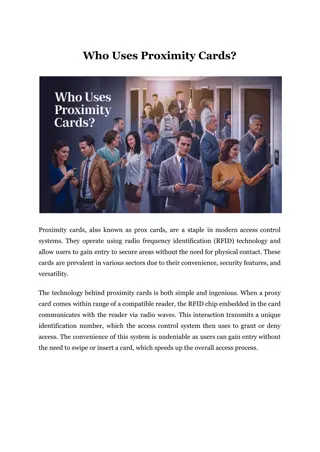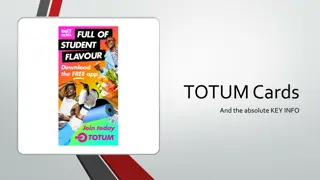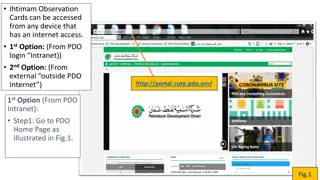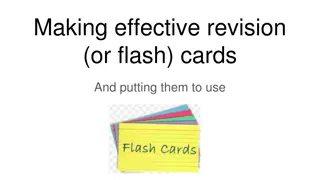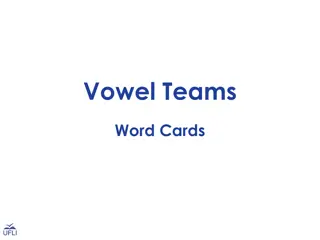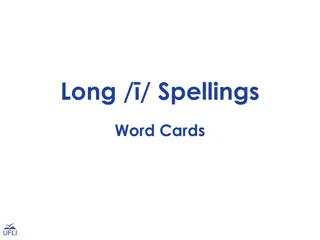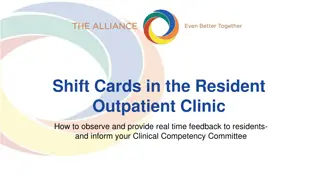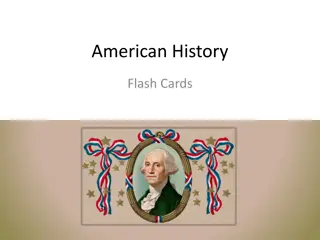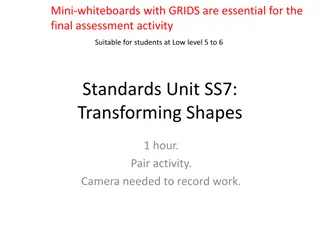
Overcoming Challenges in Implementing Local Food Policies
Learn how to address barriers such as working with local politicians, ensuring cooperation with public authorities, and engaging stakeholders in community food systems lab activities. Discover strategies to involve citizens, overcome budget constraints, gather data, and stimulate local food consumption for a successful CRFS intervention.
Download Presentation

Please find below an Image/Link to download the presentation.
The content on the website is provided AS IS for your information and personal use only. It may not be sold, licensed, or shared on other websites without obtaining consent from the author. If you encounter any issues during the download, it is possible that the publisher has removed the file from their server.
You are allowed to download the files provided on this website for personal or commercial use, subject to the condition that they are used lawfully. All files are the property of their respective owners.
The content on the website is provided AS IS for your information and personal use only. It may not be sold, licensed, or shared on other websites without obtaining consent from the author.
E N D
Presentation Transcript
Tips Accellerators Barriers FINISH START Barriers Accellerators Tips H2020 ID | 101000640 www.cities2030.eu
4. 4. 1. 2. 2. Your lab is struggling with introducing local food policies. introducing local food policies. Your lab is struggling with working with local politicians. How do local politics and the mayor's agenda affect your work? Your lab is struggling with 3. 3. Your lab is struggling with working with public authorities and local decision-makers. How do you ensure cooperation with the local authorities? with the local authorities? Your lab is struggling with working with public authorities and local decision-makers. How do you ensure cooperation 1. 1. 1. 1. 1. 1. 1. Your lab is struggling to introduce local food policies. Do you have the mandate to formulate policies? formulate policies? Your lab is struggling to introduce local food policies. Do you have the mandate to Discuss your teams capacities and ability to adapt to new concepts. concepts. Discuss your teams capacities and ability to adapt to new Go back... 3 steps. Go back... 3 steps. Go back... 1 step. Go back... 1 step. Go back... 1 step. Go back... 1 step. Go back... 3 steps. Go back... 3 steps. Go back... 3 steps. Go back... 3 steps. Go back... 3 steps. Go back... 3 steps. Go back... 3 steps. Go back... 3 steps. 7. 7. 8. 8. 5. 5. Your lab is struggling to maintain stakeholder engagement in CRFS lab activities. How do you deal with stakeholders fatigue and/or limited willingness? Go back...1 step. Go back...1 step. Go back...1 step. Go back...1 step. 11. 11. Your lab is struggling to involve citizens and community groups in the design of the intervention from earlier stages. How do you involve citizens in your activities? your activities? Your lab is struggling to maintain stakeholder engagement in CRFS lab activities. How do you deal with stakeholders fatigue and/or limited willingness? Your lab is struggling to involve citizens and community groups in the design of the intervention from earlier stages. How do you involve citizens in Discuss budget constraints within your CRFS. How does the budget limit the development of your CRFS lab? your CRFS lab? 1. 1. 1. 1. Discuss budget constraints within your CRFS. How does the budget limit the development of 1. 1. 1. 1. Your lab is lacking data regarding the CRFS. What is the status of data collection in your CRFS? collection in your CRFS? Your lab is lacking data regarding the CRFS. What is the status of data Go back... 3 steps. Go back... 3 steps. Go back... 3 steps. Go back... 3 steps. Go back... 1 step. Go back... 1 step. Go back... 1 step. Go back... 1 step. Go back... 1 step. Go back... 1 step. Go back... 1 step. Go back... 1 step. 6. 9. 10. 12. Oh no! It looks like... your intervention has not led to an increase in awareness of local food supply chains. How would you stimulate local food consumption? Oh no! It looks like your CRFS lab hasn't been very active lately. How would you re- engage with your local community after a break? Your lab is struggling to set up a Food Council in your city- region. What are the barriers that prevent you from setting up a Food Council? 1. 1. 1. 1. What environmental challenges are impacting your CRFS? Go back... 1 step. Go back... 1 step. Go back... 1 step. Go back... 1 step. Go back... 3 steps. Go back... 3 steps. Go back... 1 step. Go back... 1 step.
1. 1. 13. 14. 15. Congrats! Your lab has managed to engage with citizens and local groups. How would you keep the momentum going and further increase citizen involvement in decision making processes? Go forward... 1 step. Go forward... 1 step. Go forward... 1 step. Go forward... 1 step. Congrats! Your lab has managed to engage with citizens and local groups. How would you keep the momentum going and further increase citizen involvement in decision making processes? Oh no! It looks like... your lab is running out of funding for a pilot project. How do you proactively reach out to potential organisations to set broad synergies? Oops! It looks like you haven't signed the MUFPP yet. Identify and assess any benefits to being part of the MUFPP network. Your lab is struggling to secure urban or peri-urban lands for urban agriculture. How would you deal with it in your CRFS context? 1. 1. 1. 1. 1. Go back... 3 steps. Go back... 3 steps. . Go back... 3 steps. Go back... 3 steps. Go back... 1 step. Go back... 1 step. 5. 5. 4. 4. 3. 3. 2. 2. The local community is positive about adopting more plant- based diets. What kind of pilot project would you kick-start in The local community is positive about adopting more plant- based diets. What kind of pilot project would you kick-start in your CRFS to contribute on it? your CRFS to contribute on it? Wow! Your lab has designed an intervention in such a way that it could be easily replicable in other cities. Are you part of any cities network? What are the benefits? Go forward... 1 step. Go forward... 1 step. Go forward... 1 step. Go forward... 1 step. Wow! Your lab has designed an intervention in such a way that it could be easily replicable in other cities. Are you part of any cities network? What are the benefits? Congratulations! You have gained new skills along the Cities2030 way. What skills would your Lab s team need to develop further? team need to develop further? Congratulations! You have gained new skills along the Cities2030 way. What skills would your Lab s Congratulations! You fully comprehend the food systems thinking approach. How does your lab use this important approach? important approach? Congratulations! You fully comprehend the food systems thinking approach. How does your lab use this 1. 1. 1. 1. 1. 1. 1. 1. Go forward... 1 step. Go forward... 1 step. Go forward... 1 step. Go forward... 1 step. Go forward... 1 step. Go forward... 1 step. Go forward... 1 step. Go forward... 1 step. Go forward... 1 step. Go forward... 1 step. Go forward... 1 step. Go forward... 1 step. 7. 7. 8. 8. 6. 6. 9. Lessons learnt are great, but they only work if you put them into action. What is a key learning you would share with other labs? other labs? Lessons learnt are great, but they only work if you put them into action. What is a key learning you would share with You are working very closely with the regional or national government. Do you find national or regional food policies helpful for your work? your work? You are working very closely with the regional or national government. Do you find national or regional food policies helpful for Wow! You have constant collaboration with certain local farmers and producers cooperatives in the region. How do you approach these stakeholders? stakeholders? Wow! You have constant collaboration with certain local farmers and producers cooperatives in the region. How do you approach these 1. 1. 1. 1. 1. 1. 1. Congratulations! You have successfully organised a workshop about food waste and house composting. What would you further do to combat food waste? Go forward... 1 step. Go forward... 1 step. Go forward... 1 step. Go forward... 1 step. Go forward... 1 step. Go forward... 1 step. Go forward... 1 step. Go forward... 1 step. Go forward... 1 step. Go forward... 1 step. Go forward... 3 steps. Go forward... 3 steps. Go forward... 3 steps. Go forward... 3 steps.
It is increasingly useful to collect and analyse data. You can gain insights and drive conclusions for developing action-plans, informing policy design and impact assessment. Ensure appropriate management of data for data- driven decision-making! 11. 10. Good news! The association of community garden and garden plots has approached you to co- create a new pilot project. What are your next steps to make it happen? Go forward... 3 steps.. Go forward... 3 steps.. 1. Wow! You have successfully organised a workshop about urban farming and community gardening. How do you further stimulate urban farming in your CRFS? Go forward... 3 steps. Go forward... 3 steps. 1. 1. 1. Aim at monitoring and evaluation: define KPIs and ensure the use of compliance and monitoring/assessments tools, together with your team. Cities around the world are increasingly conducting research with the help of citizens. Citizen or community science projects actively involve citizens in scientific endeavour that generates new knowledge or understanding. Set an organisational framework: work towards and ensure political will, synergy among different city departments, and policy alignment across government levels, Always go back to define your strategy, considering a shared vision with stakeholders to ensure your CRFS is fair and accessible, with social inclusion. 1. 1. 1. Have you thought of setting up a Food Council in your city- 1. region? Such governance concepts democratisethe operations, aiming to co-creation among public administration's different departments, stakeholders, and citizens.



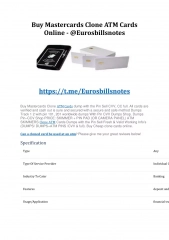
![Guardians of Collection Enhancing Your Trading Card Experience with the Explorer Sleeve Bundle [4-pack]](/thumb/3698/guardians-of-collection-enhancing-your-trading-card-experience-with-the-explorer-sleeve-bundle-4-pack.jpg)
